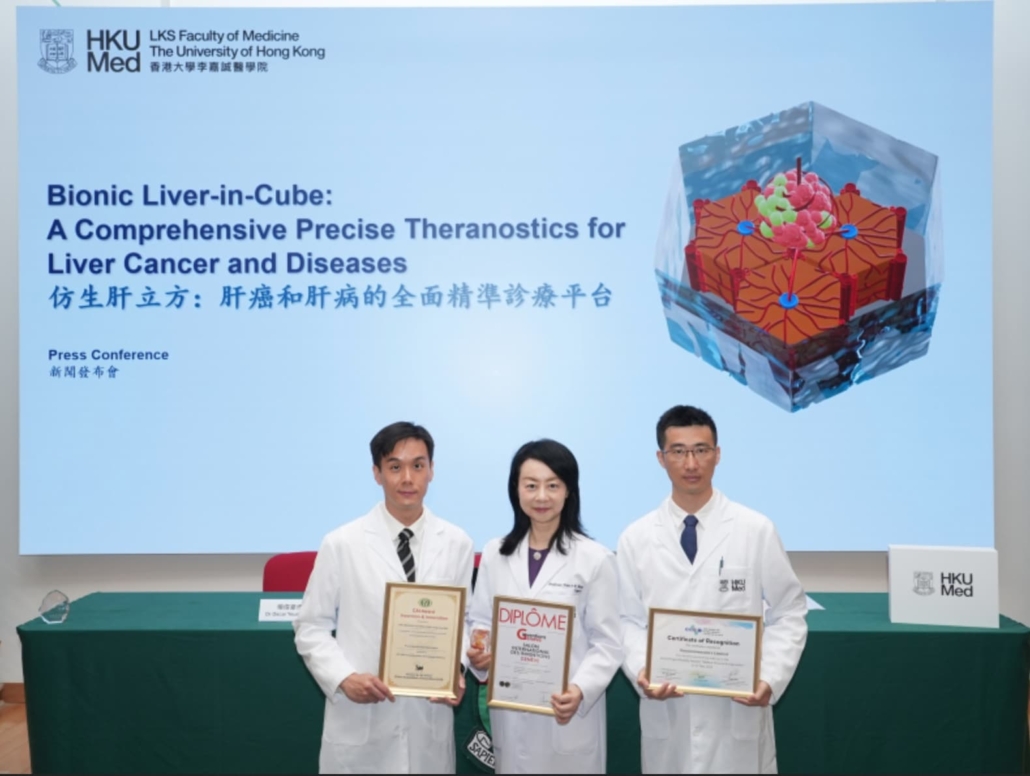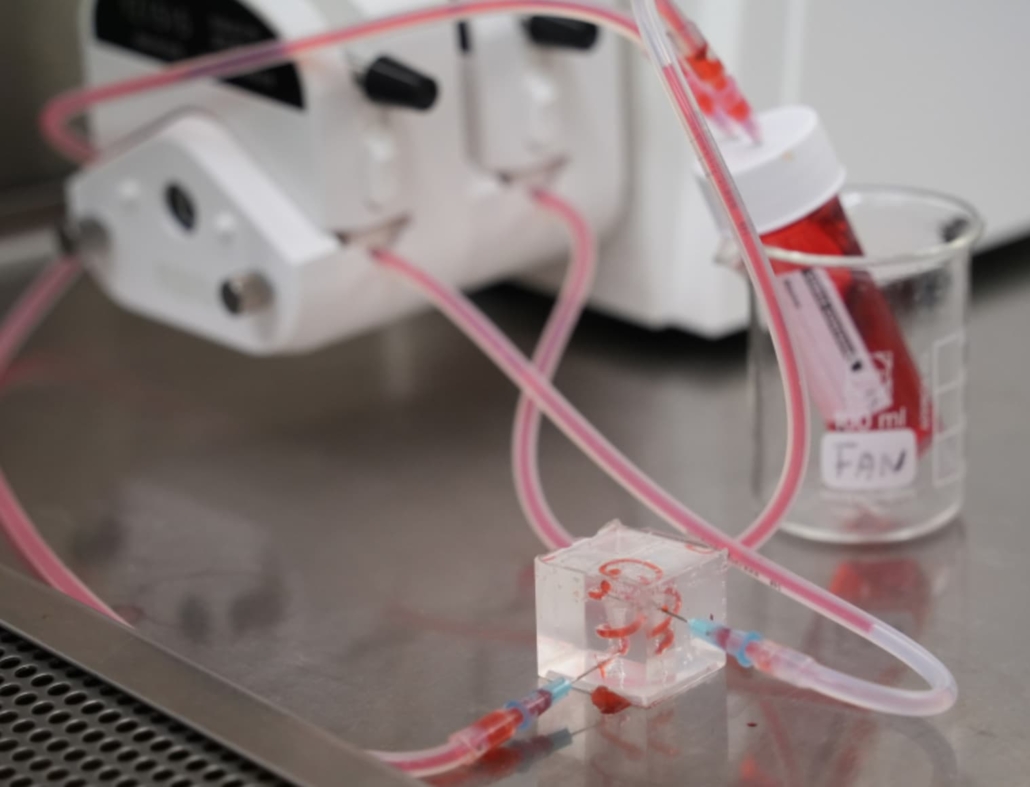World first Bionic Liver-in-Cube wins gold medal at Geneva International Exhibition of Inventions
HKUMed team’s technology set to revolutionise liver cancer care
A groundbreaking innovation in liver cancer treatment has earned international recognition for a team of researchers from the University of Hong Kong’s LKS Faculty of Medicine (HKUMed). Their ‘Bionic Liver-in-Cube: A Comprehensive Precise Theranostics for Liver Cancer and Diseases’ (‘Liver-in-Cube’) technology was awarded a Gold Medal and the prestigious ‘Prize of the China Invention Association’ special grand prize at this year’s Geneva International Exhibition of Inventions.

HKUMed’s world-first ‘Liver-in-Cube’ helps rapid evaluation of the efficacy and side effects of various drugs and therapies, advancing precise cancer treatment. (From left) Dr Oscar Yeung Wai-ho, Professor Man Kwan and Dr Liu Jiang.
The accolades underscore the potential impact of this technology in addressing one of the most pressing challenges in oncology. Liver cancer remains a formidable global health threat, ranking as the sixth most common cancer and the third leading cause of cancer-related deaths worldwide.
Current treatment modalities for advanced liver cancer, including chemotherapy, targeted therapy, and immunotherapy, often yield disappointing results. These approaches frequently demonstrate low response rates and severe side effects, compromising both efficacy and patient quality of life.
Personalised approach with drug screening platform
The ‘Liver-in-Cube’ technology addresses the heterogeneity of liver tumours and their microenvironments. This variability can lead to unpredictable treatment outcomes even when patients receive the same drug. By creating a personalised drug-screening platform, this innovation aims to eliminate the trial-and-error approach that often results in multiple treatment failures, unnecessary financial burden, and missed opportunities for effective intervention.

The new drug screening platform ‘Liver-in-Cube’ is developed using cells and tissue from liver cancer patients. The platform accurately simulates the tumour characteristics of individual patients, allowing continuous drug tests and evaluation of the effects of various therapies on the bench.
Professor Man Kwan, Chair Professor in the Department of Surgery, School of Clinical Medicine, HKUMed, who led the award-winning research, highlighted the significance of the invention: “The new drug screening platform ‘Liver-in-Cube’ accelerates the evaluation of the efficacy and side effects of various drugs for patients, allowing doctors to identify the optimal treatment method for personalised treatment. The invention allows patients to quickly receive the most effective and individualised treatment with the least adverse effects and reduced recurrence, thus leading to prolonged survival and improved quality of life.”
Core technologies behind ‘Liver-in-Cube’ innovation
The research team developed three core technologies to realise their vision:
- Novel cell and matrix protein separation: This technique allows for the simultaneous extraction of hepatocytes, tumour cells, immune cells, and matrix proteins from patient tissue samples. The resulting model accurately replicates individual tumour characteristics, including cell numbers, tissue stiffness, and immune status.
- Advanced 3D bioprinting: The team utilises cutting-edge bioprinting technology to fabricate a model that incorporates regions of normal tissue, tumour tissue, and vascular structures. This approach surpasses traditional 3D cell culture and organoid products in its ability to reproduce patient-specific tumour architecture and characteristics.
- Integrated microvascular system: The tumour model features a unique microvascular system, enabling continuous drug testing and evaluation of various therapies in vitro.
Implications beyond liver cancer
The international recognition received by the ‘Liver-in-Cube’ technology at the Geneva exhibition speaks to its potential impact beyond liver cancer. Prof. Man emphasised its broader applications, saying that the invention “can significantly improve the quality of life of patients by promoting early diagnosis and treatment of liver cancer and liver disease, and accelerating the promotion and application of precision medicine for various diseases”.
In the sphere of drug development, the technology offers significant advantages. By providing a more accurate alternative to animal models for preclinical efficacy and safety testing, it has the potential to increase the success rate of clinical trials while simultaneously reducing development cycles and costs.
The ‘Liver-in-Cube’ technology is currently undergoing preclinical study, clinical efficacy research, and safety assessment, before potential commercialisation.
The award-winning research was a collaborative effort led by Prof. Man and Prof. Lu Jian from the City University of Hong Kong. The team also included Prof. Albert Chan Chi-yan, Dr Liu Jiang, and Dr Oscar Yeung Wai-ho from the Department of Surgery, School of Clinical Medicine, HKUMed.

